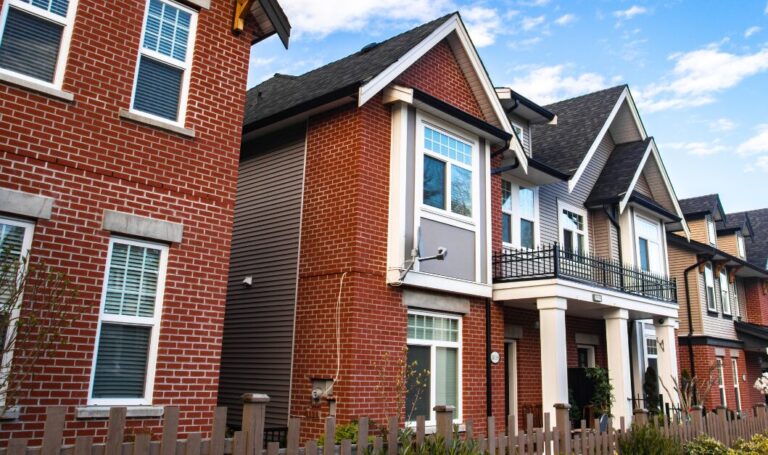The property market is back up and running, and many people who have had their house moves stalled as a result of COVID-19 are wanting to buy and sell property quickly. This is where property auctions come in.
Thousands of properties are sold every year at auction, with the allure of a good deal and a quick process proving attractive to many buyers. Auctions are particularly popular with investors and buyers looking for a doer-upper, but they attract mainstream buyers and sellers too.
We’ve created this guide to answer any questions you might have about buying a house at auction.
How do house auctions work?
Property auctions can be planned up to months in advance, and property catalogues are usually released one month before the auction. The auction catalogue includes descriptions of the properties and details on how to arrange viewings.
Each property will be listed with a guide price, which is what the auction house or seller thinks it could be worth. This is different to the reserve price, which is the minimum the seller will actually accept. This figure is usually kept confidential.
Auctions will either take place at a live event or online. At live events you can either bid over the phone or in person, whereas online auctions are fully digital.
If your bid is successful, you’ll have a fixed exchange and completion period of either 28 or 56 days, depending on if this particular auction follows the Traditional or Modern Method of Auction.
Traditional Method of Auction
- Also referred to as the “Unconditional” method of auction.
- The exchange of contracts takes place as soon as the auction ends. The buyer is required to pay a 10% deposit at this point of exchange and complete within 28 days, so you need to ensure you have enough funds available to do this.
- You will be required to sign a Reservation Agreement if you are the successful bidder. This commits both the seller and the buyer to completing the purchase.
Modern Method of Auction (MMoA)
- Also referred to as the “Conditional” method of auction.
- Exchange and completion take place within 56 days of the auction ending.
- You are required to sign a Reservation Agreement if you are the successful bidder. This commits both the seller and the buyer to completing the purchase.
- You will be required to pay a non-refundable Reservation Fee within 2 hours of the auction ending. This is paid in addition to the agreed purchase price.
Can you get a mortgage on an auction property?
Yes, you can. At IAM Sold, almost 40% of properties were purchased with a mortgage in 2019.
The Modern Method of Auction is better for mortgage buyers as it provides an extended timescale of 56 days for completion, compared to 28 days in the Traditional method. This gives you time to arrange a mortgage.
It’s a good idea to have a mortgage agreement in principle organised in advance to speed up the process.
Can first time buyers buy at auction?
Yes, they can. If you need a mortgage, it’s sensible to start arranging this as soon as possible so that you can bid knowing that you have the funds needed and so that you can complete within the required timeframe.
It’s important that you have your finances in order to ensure you can afford the associated fees, and the deposit if going through a traditional auction.
How much money do you need to buy a house at auction?
How much money you need depends on the type of auction. The Traditional Method requires a 10% deposit. You also need to have funds available to be able to complete the purchase within 28 days of the exchange taking place.
In most cases, the Modern Method of Auction does not require a deposit, but it does require a Reservation Fee of up to 5% of the property value (4.2% at IAM Sold). This is non-refundable and is paid in addition to the agreed purchase price. The cost of the property can then be covered with cash or a mortgage.
You also need to have the necessary funds for any additional fees, including stamp duty and solicitor fees, and for buildings insurance from the point of exchange.
How to prepare for a house auction
Find an auction
Get your hands on a copy of the auction catalogue and research the properties going to auction in the areas you want to buy.
Attend viewings
Use these as a chance to thoroughly inspect any properties you’re interested in and ask any questions you have. Consider taking a builder with you to find out if any work needs doing and how much it’s likely to cost.
Consider a survey
A survey will identify any potential problems regarding the condition of the property and any potential legal issues.
Arrange a mortgage and get your finances in order
If your bid is successful, you’ll have a set number of days to exchange and complete, so get a mortgage agreement in principle organised in advance. Ensure you also have the necessary funds available to cover your fees.
Carry out legal checks
There will usually be a legal pack prepared in advance by the seller’s solicitor, including documents such as the conditions of the sale and the results of a local authority search of the property. Study the particulars, read all the small print and send the pack to your solicitor to check for any loopholes.
Research buildings insurance
If your bid is successful, you’ll be responsible for the building insurance as soon as you exchange contracts, so shop around to find the best option so that you’re ready to go if your bid is successful.
Set your maximum budget
It’s easy to get carried away at an auction, so go armed with a set price limit to ensure you stay within budget. Research the value of other similar homes in the area to ensure you don’t pay more than the property is worth.
Ready to buy a property at auction? Explore our selection of auction properties to see what’s currently available in the area you’re interested in.




